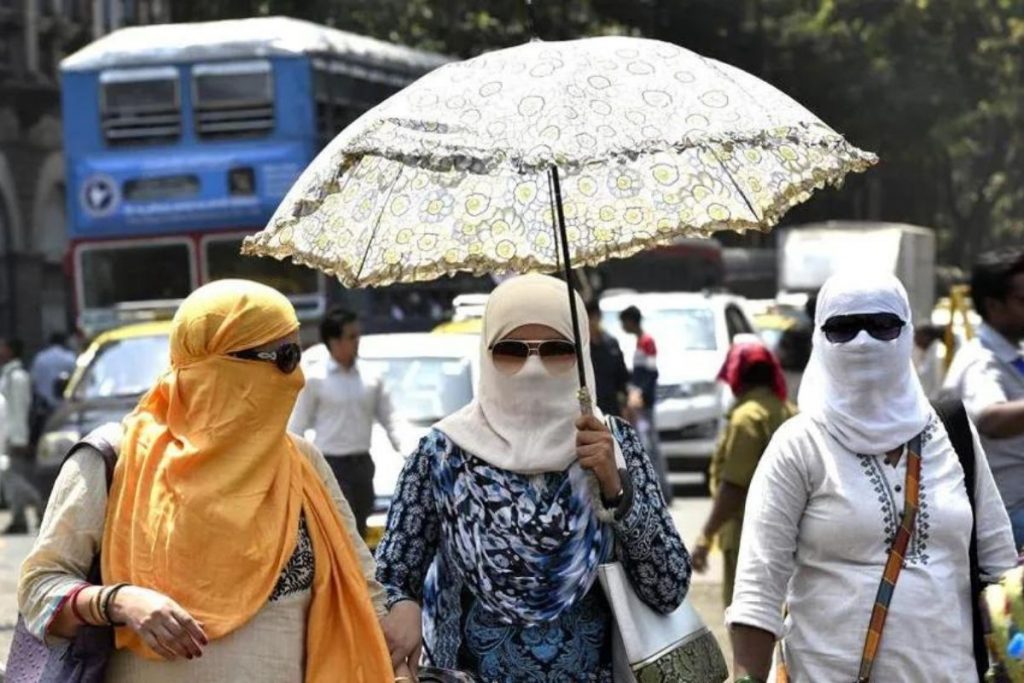New Delhi: A heatwave is a period of abnormally high temperatures, more than the normal maximum temperature that occurs during the summer season in the North-Western parts of India, according to National Disaster Management Authority.
Heatwaves typically occur between March and June, and in some rare cases even extend till July. As of now, schools have been closed in Maharashtra, Odisha and West Bengal due to heat wave conditions. In northern states, the temperature is soaring but there is respite due to Western disturbances from time to time. Heat waves affect the Northern states of Uttar Pradesh, Haryana, Punjab, and Rajasthan generally in the month of May and June.
While talking to ANI, Senior Consultant Physician & Endocrinologist from Madhukar Rainbow Children’s Hospital Dr Sharwari Dabhade Dua, said, “A steady rise in temperature and environmental changes has led to very hot and humid summers since past few years. This rise is only getting worse with coming years.”
“Our body has the ability to maintain the temperature via dissipation of heat, in the form of perspiration. However, extreme heat and humidity affect this acclimatisation leading to heat stroke,” Dr Dua added.
“Certain pre-existing conditions like high blood pressure, heart failure, obesity, diabetes, and kidney disease can cause a higher risk of heat stroke. Children and old age people get affected more. In such cases, adequate hydration with electrolytes like sodium and proper air conditioning is advised to cool the body temperature. Minor symptoms need to be watched before they get severe. Immediate hospitalisation is advised in case of loss of consciousness, chest pain, decreased urination and severe fatigue,” Dr Dua further stated.
Meanwhile, the Director of Lok Nayak Jai Prakash Narayan Hospital (LNJP) Hospital, Dr Suresh Kumar said, “These days the temperature is reaching near 40 degrees and when the temperature crosses or is near 40 degrees. There is a lack of water in the body which is called dehydration. It is important that we take as much liquid as possible, like coconut water, juice, lassi, and more water etc.”
“Whenever you are going out of the house these days, keep a water bottle with you, as well as keep your head covered while going in the sun. And try not to stay in the Sun for too long as it can lead to dehydration. Also, it can cause problems like heat stroke, and dizziness,” Dr Kumar further said.
“Due to lack of water in the body, sweating stops and there is a deficiency of sodium, potassium etc. in the body, which affects our brain and heart,” the doctor added.
To minimise the impact during the heatwave and to prevent serious ailment or death because of heat stroke, you can take the following measures:
- Avoid going out in the sun, especially between 12.00 noon and 3.00 p.m.
- Drink sufficient water as often as possible, even if not thirsty
- Wear lightweight, light-coloured, loose, and porous cotton clothes. Use protective goggles, an umbrella/hat, shoes or chappals while going out in sun.
- Avoid strenuous activities when the outside temperature is high. Avoid working outside between 12 noon and 3 p.m.
- While travelling, carry water with you.
- Avoid alcohol, tea, coffee and carbonated soft drinks, which dehydrate the body.
- Avoid high-protein food and do not eat stale food.
- If you work outside, use a hat or an umbrella and also use a damp cloth on your head, neck, face and limbs.
- Do not leave children or pets in parked vehicles.
- If you feel faint or ill, see a doctor immediately.
- Use ORS, homemade drinks like lassi, torani (rice water), lemon water, buttermilk, etc. which help to rehydrate the body.
- Keep animals in shade and give them plenty of water to drink.
- Keep your home cool, use curtains, shutters or sunshades and open windows at night.
- Use fans, damp clothing and take bath in cold water frequently.
The extreme temperatures and resultant atmospheric conditions adversely affect people living in these regions as they cause physiological stress, sometimes resulting in death, according to National Disaster Management Authority.
The health impacts of heatwaves typically involve dehydration, heat cramps, heat exhaustion and/or heat stroke. The signs and symptoms are as follows:
Heat Cramps: Ederna (swelling) and Syncope (Fainting) are generally accompanied by fever below 39 degrees Celcius.
Heat Exhaustion: Fatigue, weakness, dizziness, headache, nausea, vomiting, muscle cramps and sweating.
Heat Stoke: Body temperatures of 40 degrees Celcius or more along with delirium, seizures or coma. This is a potentially fatal condition.
Heatwave conditions can result in physiological strain, which could even be fatal.

